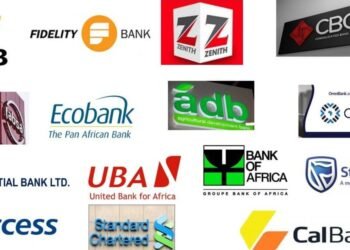The recent surge in the COVID-19 case in the country has raised uncertainty among the various economic agents in the country amid speculations of a possible second lockdown.
The devastating effects of the pandemic on the Ghanaian economy was felt in almost all the sectors which resulted in two successive negative quarterly growth rates of 3.2 percent and 1.1 percent in Q2 and Q3 2020 respectively.
▪ GDP shrinks by 1.1 percent in Q3 for the second time in 2020
Whilst two successive contractions in an economy technically means the economy is in recession, the shrinkage in the economy may not be of much concern to most Ghanaians as compared with the drastic price hikes witnessed during the partial lockdown in Greater Accra, Greater Kumasi, and Kasoa in March last year.
Even though inflation has been a familiar foe to Ghanaians, the outbreak of the COVID-19 pandemic wiped out the single-digit inflation recorded in the first quarter of 2020, taking inflation out of the government’s medium-term inflation targeting bound of 8±2 percent.
From 7.8 percent in January 2020, inflation rose to a record high of 11.4 percent in July last year, before easing gradually in the subsequent months to settle at 9.8 percent in November.
That happened at a time when the Governor of the Bank of Ghana, Dr. Ernest Addison had announced that recent economic indicators monitored by the Central Bank pointed to a rebound of economic activity in the country. The Governor further pointed out that the economy was recovering faster than expected as business and consumer confidence were rising.
However, inflation increased to 10.4 percent in December 2020 driven mainly by the increment in food prices which was led by the vegetable sub-group. The average inflation of 9.9 percent in 2020 was however within the single-digit target bound.
Nevertheless, the recent surge in COVID-19 cases signals an imminent astronomical increase in general price levels in the country if COVID-19 protocols are not strictly observed which may force the government to impose another lockdown as is being speculated.
Already the ball has been set rolling for a rise in food prices due to shortages of certain staple foods across the country.
In the last quarter of last year, there was a nationwide shortage of maize in the country. The shortage resulted in a hike in maize prices that trickle-down to the value chain of maize including Kenkey, and the poultry eggs.
Due to the shortage, the price of kenkey in some parts of Accra went up drastically, selling between GH¢1.50 and GH¢2.00. Similarly, the price of eggs went up drastically due to a shortage of maize which is a major ingredient for preparing poultry feed. Currently, one boiled egg at a typical waakye joint in the capital is selling at GH¢1.50.
Press Secretary to the Minister for Agriculture, Issah Alhassan revealed last month that permits have been issued to allow poultry farmers to import maize to feed their birds as a result of the shortage.
Currently, the re-opening of schools also poses a threat to the rise in the COVID-19 cases. To limit the spread, it will require constant education by the National Commission on Civic Education (NCCE), Teachers, Parents, employers, and all Ghanaians to rally behind the government in the fight against the pandemic.
Monetary policies are mostly blamed for inflationary pressures, however, this may not be the case in recent times. Therefore, the onus lies on all and sundry to keep to the COVID-19 protocols of frequent hand washing under running water, wearing of face masks, avoiding handshakes, and avoiding touching the eyes among others.
As the adage goes, once-beaten is twice shy. So, the question begs for answers; will you like to go under another lockdown? If no, then let’s act responsibly and kick out COVID-19 in the country and the world as a whole. A rating Agency, Fitch has projected Ghana’s inflation to end 2021 at 8.5 percent, but this can partly be achieved if the virus is kept under control.





















